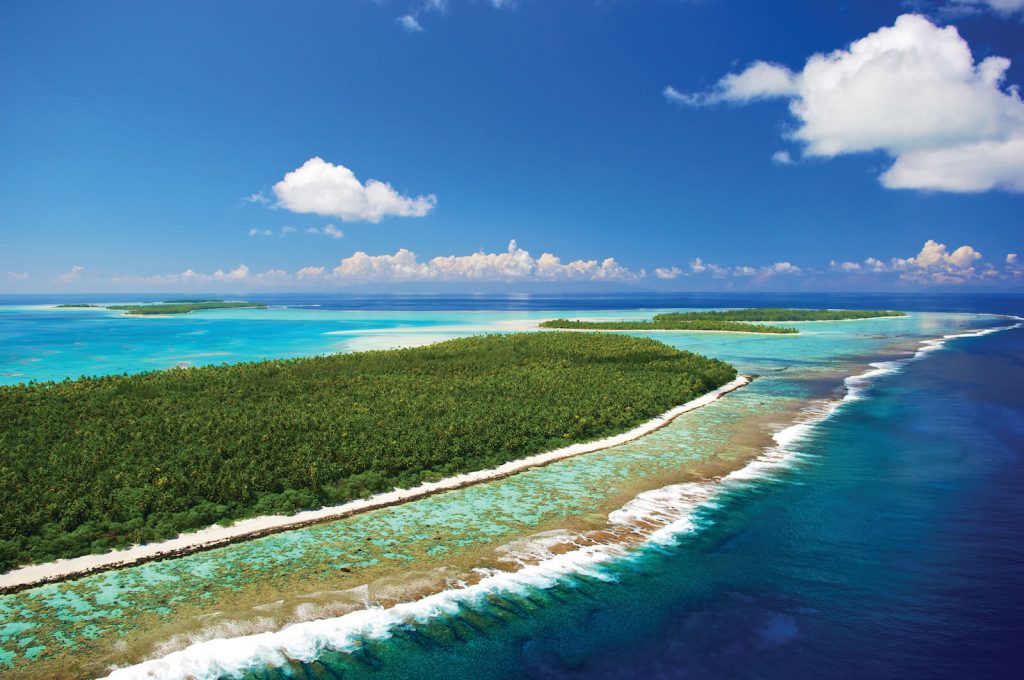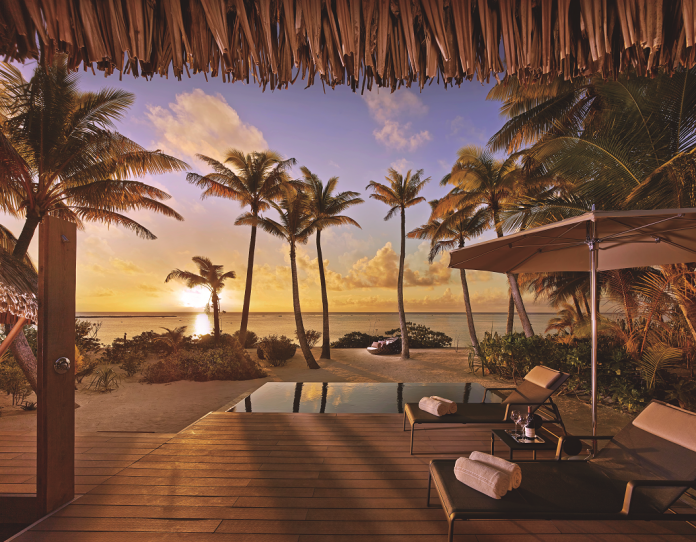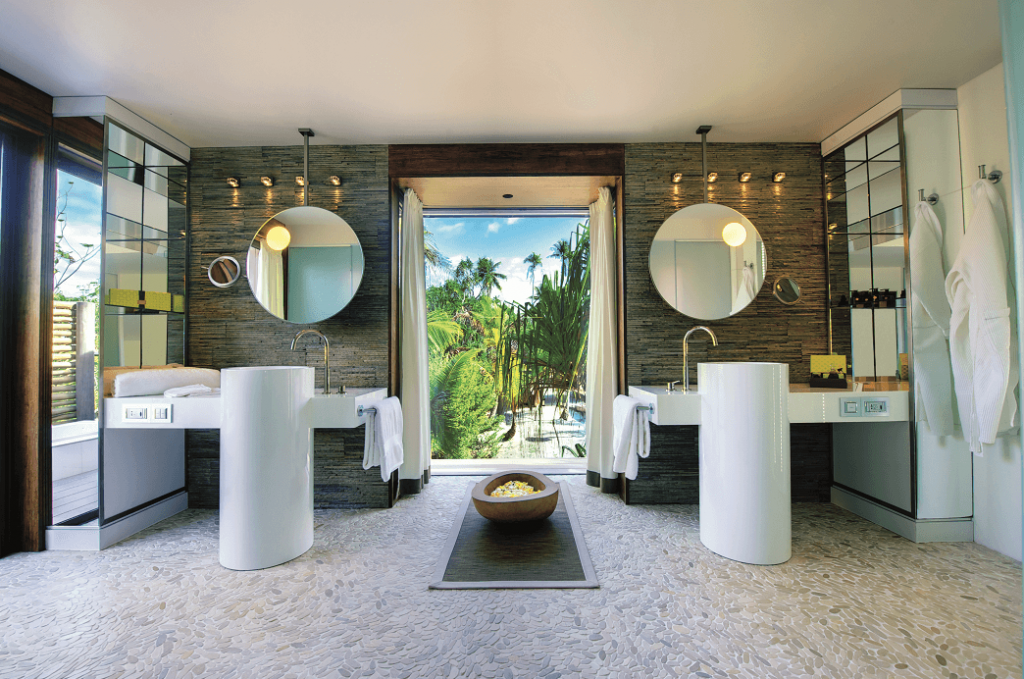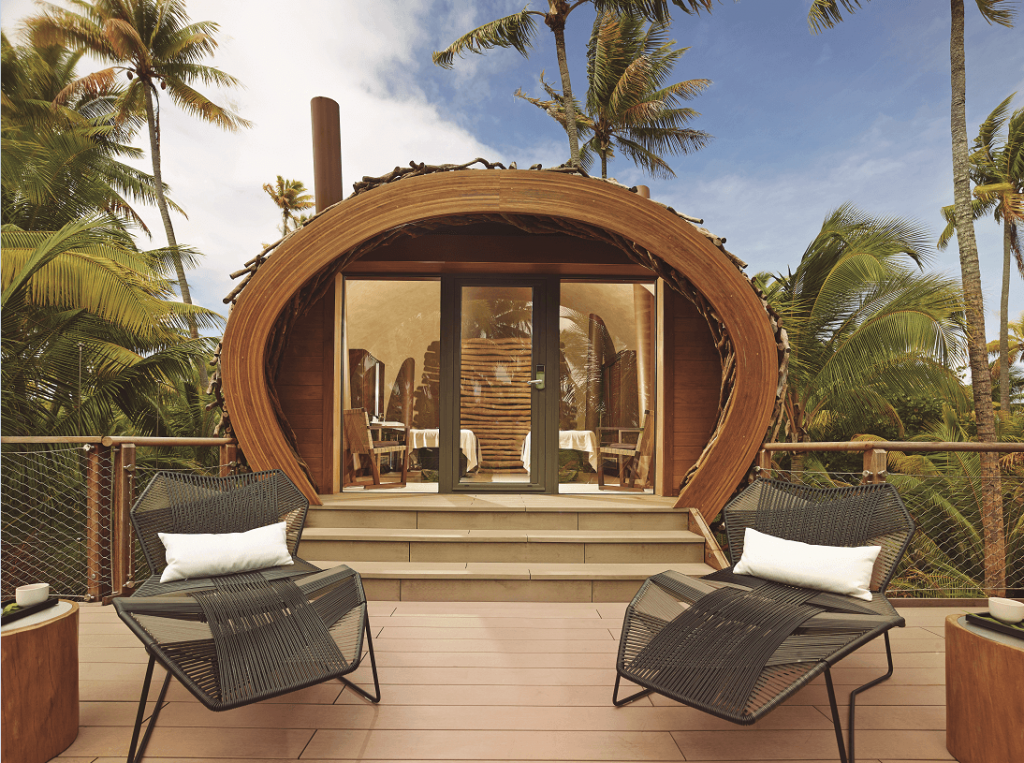The Brando operates on a principle of “responsible luxury,” and believes it is responsible for maintaining the diverse ecosystem that thrives on the French Polynesian atoll of Tetiaroa. With the help of Richard Bailey, CEO of Pacific Beachcomber, the resort has already earned a LEED certification. Upon opening, the Brando hopes to become the first resort in the world to earn LEED Platinum certification, the organization’s most prestigious award. The resort also aims to have a Net Zero carbon impact.
Brando’s Own Vision:
Marlon Brando was a passionate proponent of ecological conservation, and he contrived his own ecological innovation: Sea Water Air Conditioning, or SWAC. In keeping with Brando’s wishes, Richard Bailey and Pacific Beachcomber has developed the idea into the fully function system at the Brando today. SWAC pipes the South Pacific’s naturally chilled waters and converts them into low-energy, high-efficiency air conditioning.
EcoStation:
Marlon Brando dreamed of building a “university” on Tetiaroa to study the local ecosystem. The EcoStation, a center for scientists and researchers working to preserve tropical islands everywhere, fulfills that dream. The EcoStation, which has been handed over to Tetiaroa Society, holds both wet and dry laboratories for the analysis and preservation of field samples. Among the EcoStation’s current projects are a sustainable fisheries project, a fish replenishment program, an atoll conservation plan, and Te Mana O Te Moana (“the Spirit of the Ocean,”) a nonprofit focused on the protection of the green sea turtle, which nests on the island. Te Mana O Te Moana also works with a variety of youth-oriented educational and public outreach programs.
Organic Garden:
Fruits and vegetables for the Brando’s restaurants, the Beachfront Restaurant and the Fine Dining Restaurant, are grown in the island’s own organic garden and orchard, while each day’s fish will be gathered from the surrounding pacific waters.
Guest Education:
Guests can take advantage of the Brando’s free activities and excursions, many of which are meant to create an understanding of the area’s natural environment through inspection of plants, birds, and marine life. For some of these excursions, guests will have the opportunity to view the fully-functioning EcoStation.
Renewable Energy:
The Brando only uses natural gas, and its use is limited to cooking. In addition to using SWAC, the resort harnesses solar energy via photovoltaic solar panels, providing for all of the resort’s hot water and half of the resort’s total energy needs. The other half is taken care of by the biofuel thermal power station, which is fueled by coconut oil and helps support the local economy. Highly recyclable batteries are also employed throughout the resort.
Development:
All the Brando’s building materials are of local or certified origin. They are also either renewable or incorporate recycled components.

Carbon-neutral Transportation:
The Brando provides bicycles to all guests, and all necessary vehicles will be solar-powered. The resort also hopes to propose a carbon-offset purchase program for inter-island transportation, and will encourage its guests to opt for carbon offsets for all other flights.
The Brando’s three goals: “To fund and protect the local environment, to support the local Polynesian community, and to build the most luxurious eco-friendly resort on earth.”
For all media inquiries for The Brando, with the exception of inquiries from the US and France, please contact:
JV Public Relations
Jo Vickers
Tel: +44 (0) 207 629 6262
jo@jvpublicrelations.com
US Enquiries:
Vanessa Bloy
Tel: (425) 440-6255
vbloy@pgcruises.com
French Enquiries:
Laurence de Blic
Tel: 00 33 01 45 20 64 28























